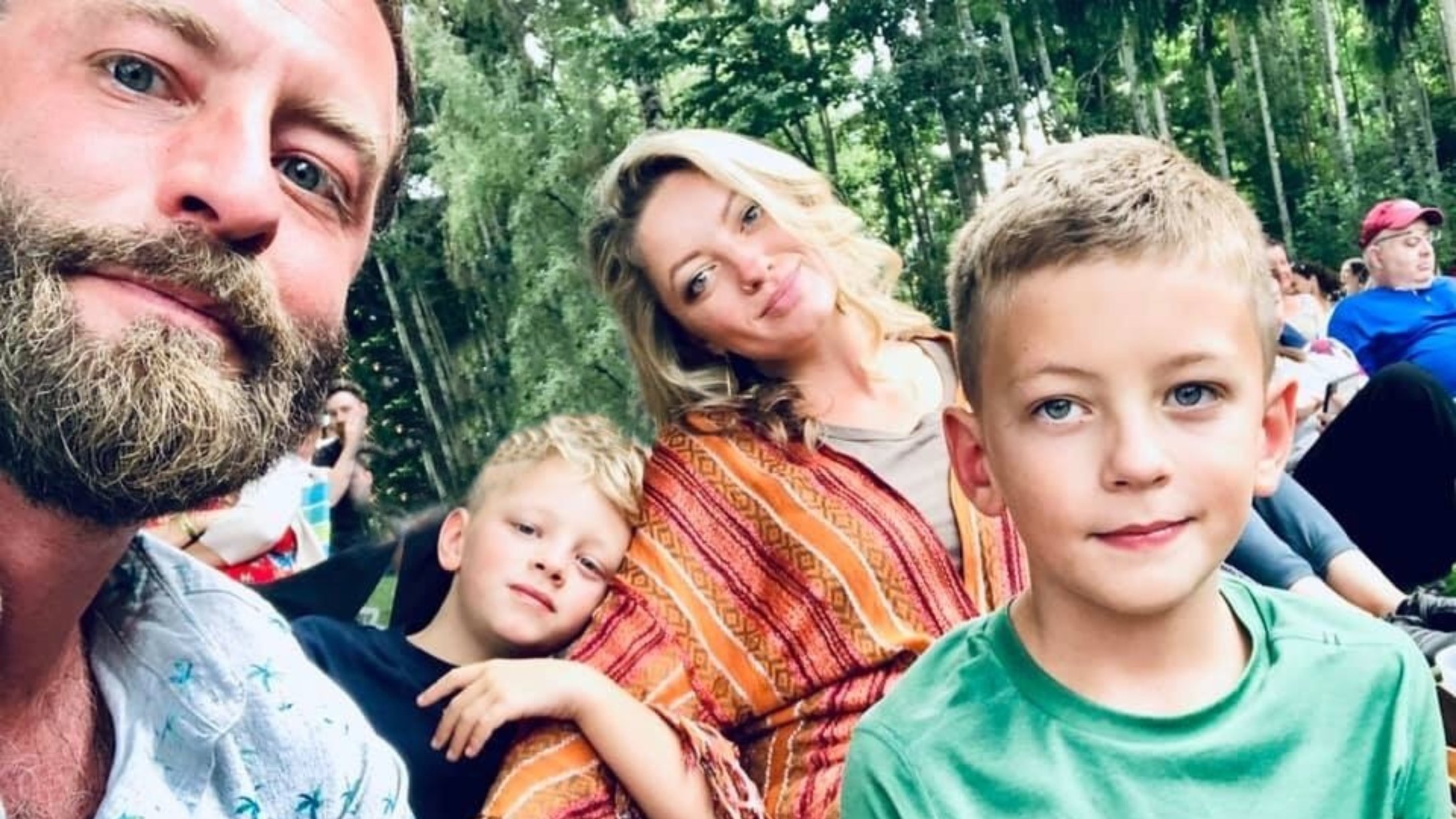
The ever-elusive quest to “have it all” is something we hear about ad nauseum these days. And yet, to the outside world, J.R. Storment and his wife Jessica Brandes did have it all. They had two incredibly smart and funny 8-year-old twins, a successful tech startup and medical degree between them, and a life that afforded them the ability to travel and live all over the world.
But last month, life as they knew it was shattered in an instant, when one of their boys died suddenly in his sleep. In two gut-wrenching viral essays, the Portland, Oregon, parents are sharing a powerful reminder for others about the lessons they’ve gleaned about life, love, and the work that so often gets in the way of our time with the people who matter most.
To hear his parents describe him, 8-year-old Wiley Storment was a force to be reckoned with. In just under a decade of life, he’d already managed to fall in love and become “engaged,” and dream up dozens of future business ideas as a future tech mogul (just like his dad).
“He was smart, artistic, ambitious, and funny, an incredible dancer, excellent taste in music and movies,” his mom wrote in her essay, titled “All That Remains.” “He had the most gorgeous blue eyes; was tall with huge feet and seemed to be outgrowing everything within two weeks.”
The day their lives changed forever
The couple’s essays, both shared on LinkedIn, recount the harrowing day their lives changed forever, when Jessica went to check on her son Wiley and found him dead. She had thought the 8-year-old was merely sleeping in (after all, his dad wrote, sleep was one of his favorite things). But instead, the mother of two was shocked to find her boy lifeless in his bed, laying beside his “best friend” and brother Oliver, who hadn’t noticed anything was wrong.
What transpired next was a blur of panic and shock and grief and even, Jessica writes, a strange calmness, as the doctor in her took over.
She knew something was wrong as soon as she saw her son lying peacefully in his bed. She noticed the telltale splotches of lividity on Wiley’s back and noted that his feet looked “mottled.” Feeling for his pulse, the mother writes that she was still surprised to find him cold to the touch, even though all signs pointed to what she already knew: Wiley was gone. And he wasn’t coming back.
Later, a medical examiner confirmed it: Wiley had died in his sleep, some 8 to 10 hours before his mother went to wake him. And while test results weren't conclusive at the time, both J.R. and Jessica write that their son likely died of SUDEP (sudden unexplained death of epilepsy). He’d been diagnosed nine months prior with a benign form of epilepsy that doctors assured he’d outgrow with age. Sadly, it seems he wouldn’t get that chance.
Living life as best as they can after the death of their son
In the meantime, his family is left trying to pick up the pieces, and navigate the uncharted waters of grief they never expected to be in.
“The weeks that followed were and continue to be a dizzy blur of people, apologies, food, and flowers,” wrote Jessica. “Our family of 4 now has to learn to be a family of 3. We’ve lost our son, and Oliver has lost his twin and his perpetual best friend since before birth. We’re going to work on this new life — how to live it as best we can.”
It’s this joint desire to somehow carry on and make sense of it all that led both J.R. and Jessica to sit down and put pen to paper. And while each essay is written from its own unique perspective, both carry heartfelt and sobering reminders for parents about focusing on the things — and people — that matter most.
For J.R., who might be described as a relentless workaholic, the regrets he feels after his son’s passing almost entirely revolve around the time he spent away from him. While the family did travel and live sought-after parts of the world, including London and Hawaii, J.R. recently realized he’d never taken more than one contiguous week off from work in the last eight years.
And so, he issued this pleading missive to mothers and fathers everywhere: “Hug your kids. Don’t work too late. A lot of the things you are likely spending your time on you’ll regret once you no longer have the time. I’m guessing you have 1:1 meetings on the books with a lot of people you work with. Do you have them regularly scheduled with your kids? If there’s any lesson to take away from this, it’s to remind others (and myself) not to miss out on the things that matter.”
‘We wish we’d had more time’
For Jessica, that precious concept of time slipping away weighs on her heavily, too.
“If we’ve learned anything at all, it’s that life is fragile and time really can be so cruelly short,” she wrote. “We wish a lot of things were different, but mostly we wish we’d had more time. If you are a parent and have any capacity to spend more time with your kids, do. When it ends, there’s just photos and leftover things and time is no longer available to you. It is priceless and should not be squandered.”
It’s hard not to read either essay without being reduced to a puddle of tears. But it’s also impossible not to heed the deep and visceral warning they both carry. The 24/7 work-culture drags so many of us into its dark hole, where it can be all too easy not to notice that we’re spending our days toiling away instead of actually living.
We forget that the work can wait; that the email can be sent in the morning; that there’s a lot going on right in the here and now, away from that computer screen.
“Take your vacation days and sabbaticals and go be with them,” Jessica urges. “You will not regret the emails you forgot to send. From now on, if you email or text me and my reply takes longer than expected, know that I am with the people I love, sharing my time, creating my new identity, and I encourage you to do the same.”




